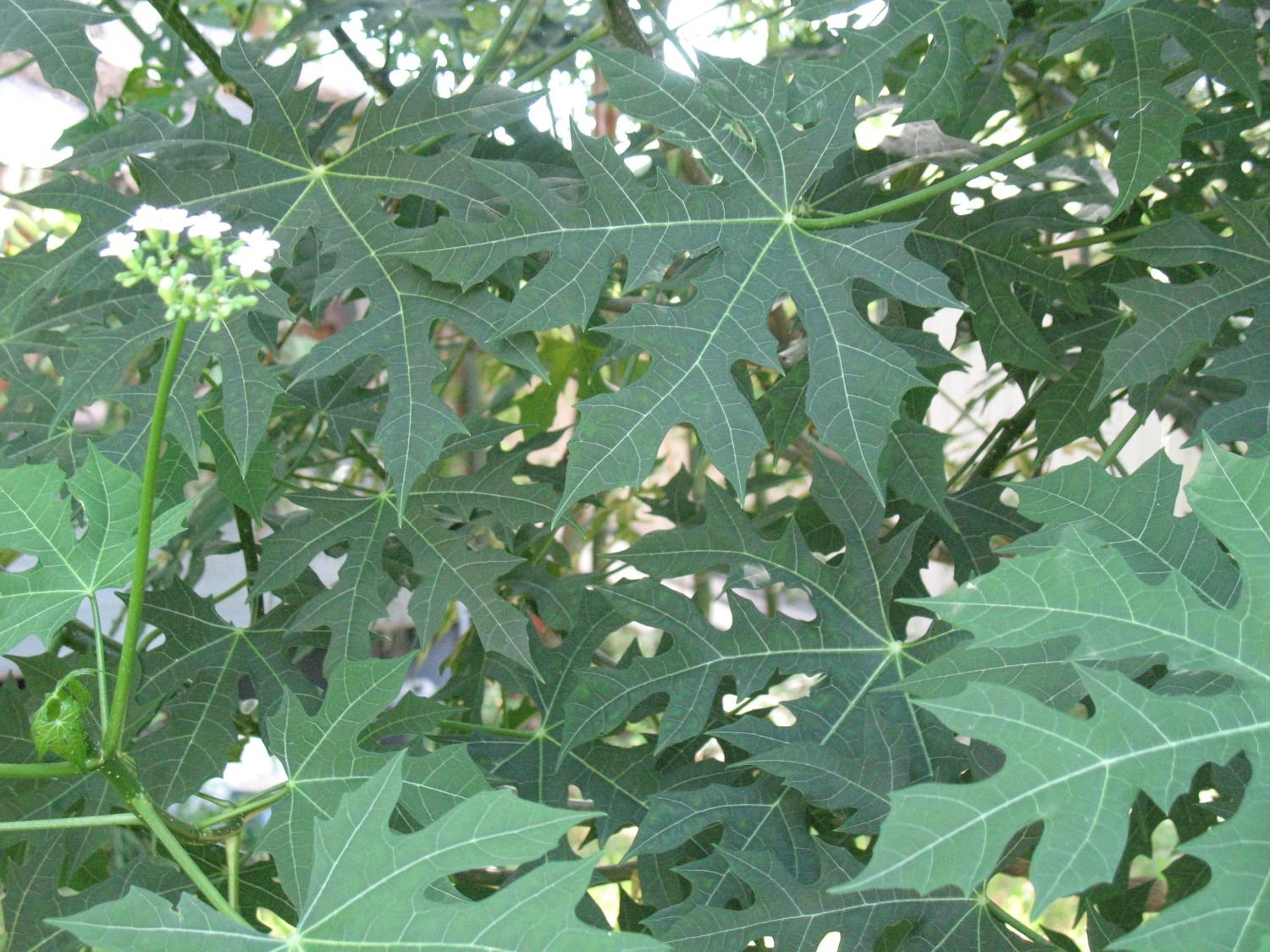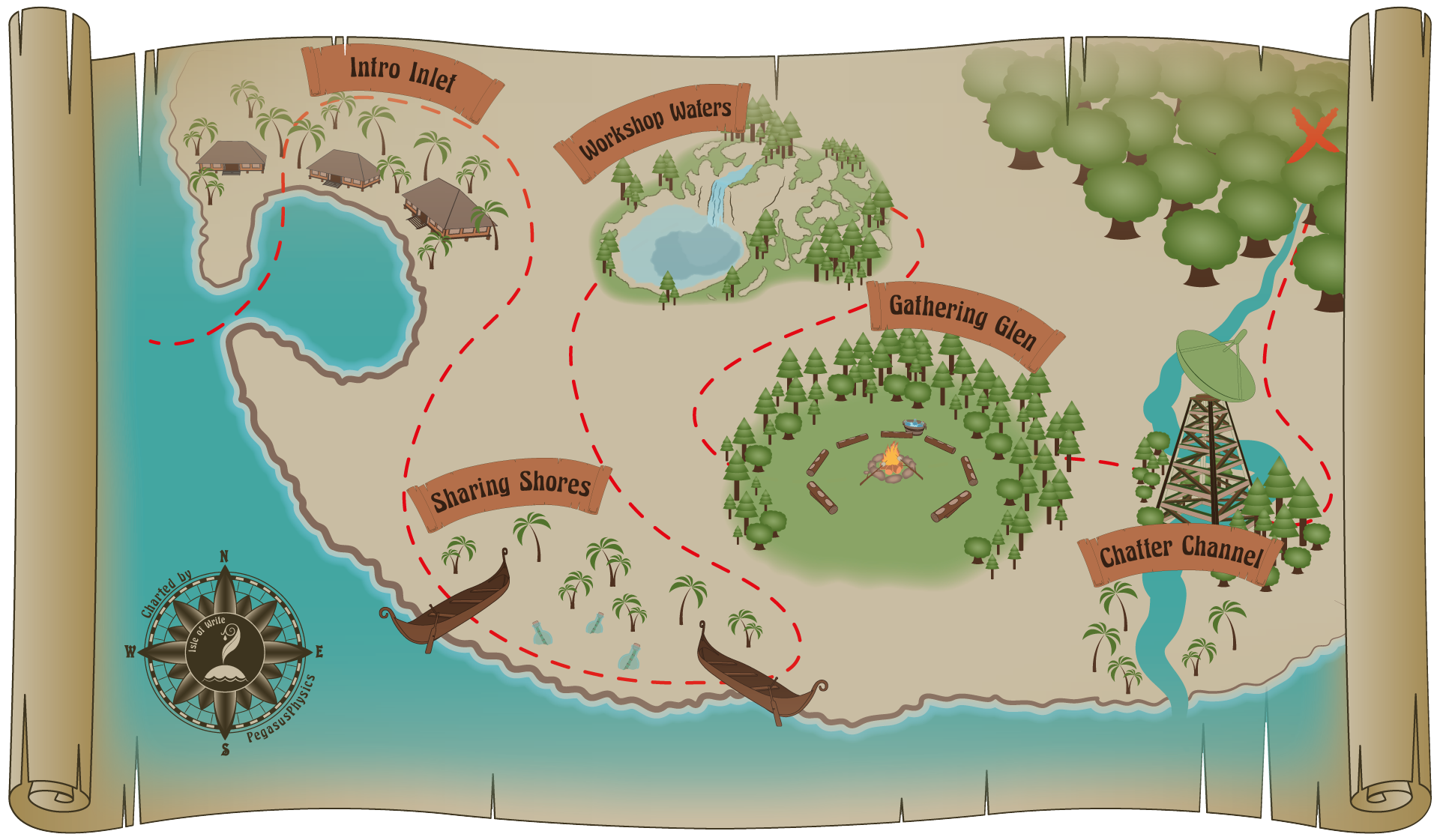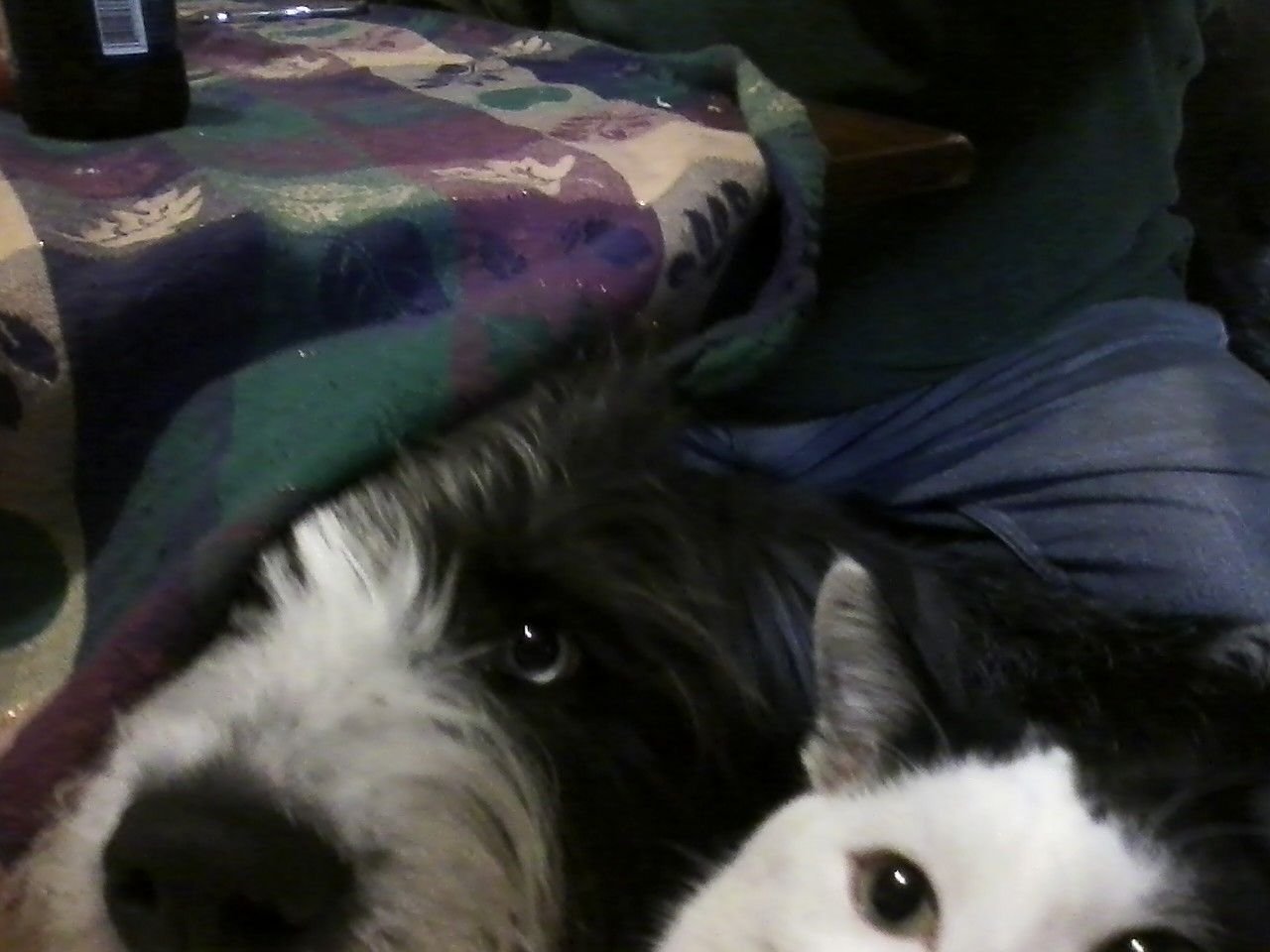

This post grew out of a comment I made on @CelestialCow's post, on changing the world by becoming a vegan. The comment just grew of its own accord, until it became obvious that it should be a separate post.
I grew up in a meat-eating household, so eating meat was normal and natural, and like most kids, I didn't think much about it.
Then as a teen I read my mom's book, "Diet for a Small Planet," by Frances Moore Lappe, and had my eyes opened regarding the planetary costs of raising so much meat for food, on a small planet with an exploding population of humans, versus raising vegetables or grain.

At the same time, I had a couple of snakes as pets, and felt no great moral dilemma over feeding them mice, which is mostly what they would have been eating in nature. It was natural to me, as a child with a scientific bent of mind, that I feed them their natural diet, even though I also like mice.
When seeing a hawk or stork catch a snake, while I was sorry to see the snake killed and eaten, I never held against the bird, which was doing what it was supposed to do.
Much as when watching a nature program, and seeing a lioness taking down an antelope or wildebeest, although I felt sympathy and even empathy for the animal being killed, the animal would have died in any case, whether or not the cameras were rolling. The camera crew didn't stage the killing; they merely made certain that they filmed what happened before them, as it presented itself.
Death is an inextricable part of life.

When I moved out on my own, I ate little meat due to the expense, and strongly considered taking the leap to becoming vegetarian. But when I went too long without eating meat, I found that my health suffered, and I learned later on that vegetarianism is actually not recommended for those with the O negative and O positive blood types.
We just don't tend to do well on strict vegetarian diets.
I still eat meat rarely, most of my meals are vegetarian or vegan, and I tend to use meat much as the Japanese do; as a condiment, rather than as the main course.
I got used to cooking vegetarian meals in Florida, because several of my closest friends there are vegetarian, and when Marek and I met he was a piscavore, meaning that he ate no meat or poultry, but did eat seafood.

For me this hybrid diet makes the most sense for me, as I am able to maintain my health, and still make a difference, as I choose to not support CAFO operations, buy organic as often as possible, and my meat intake is a fraction of that of most Americans. I'm seeking no converts, I'm simply stating what has worked, and continues to work for me.
In addition, I have been buying only organic milk for over twenty years, and have speaking out publicly against Monsanto and their ilk since the rBGH debacle in 1997, when investigative reporters Jane Akre and Steven Wilson were fired from FOX News 13 in Tampa Bay for refusing to kill the story they had been assigned by the station to write.
They uncovered the truth that rBGH (now rBST) milk causes cancer, and Rupert Murdoch, under pressure from Monsanto, personally tried to get them to kill the story.

As for the spirituality of eating meat versus being a vegetarian or vegan, for me it is a non-issue, as there is no death, and we are all One. Literally.
Even vegetarians are killing multiple life forms in order to eat, as plants are demonstrably sentient, so the argument against meat eating from the standpoint of animal sentience is, to me, hypocritical and borderline nonsensical.
Certainly it is vital that animals raised for food are raised humanely, not allowed to suffer, and treated kindly by their caretakers, which does occur on the majority of family farms, in a way that has never been the case on corporate factory farms.

Most family farmers love their animals and treat them well, often considering them part of the family. I got a grocery bag from our local Tractor Supply that said it perfectly: “I don't have pets. I have friends and coworkers.”
As Joel Salatin has said, the downside to raising animals for meat is that you wind up eating your friends, and all you have to do is to watch him interacting with his animals to see the love there, on both sides.
These are animals that are given as good a life as he can give them, which is as it should be, and when they are butchered, they are killed humanely and with love. Yes, I understand that for those with no experience of it, it sounds counter-intuitive, but an animal can indeed be killed with love, and little or no fear.

I am fortunate to be surrounded by farms raising cattle on pasture, rather than confined, though it is still tough to find meat that is finished on pasture, and not fed GMO-containing grains. But pastured meat is available fairly close at hand, and while not cheap, it is reasonable enough for occasional use.
Then there is the fact that I own cats, which are obligate carnivores, and cannot be put on a vegetarian diet and remain healthy.
Dogs are more omnivorous, but they too evolved to eat mostly meat, which is what we should be feeding them.
And frankly, most commercial pet foods are pure crap with little nutritional value. That right there means that I'll always be buying some meat, to ensure their good health, even if I were to become vegetarian.

And while I do raise rabbits that are technically a meat breed, I am doing so primarily to perpetuate a rare breed, and the likelihood that Marek and I will start slaughtering them for food any time soon, barring famine, is pretty slim. I love my bunnies, and like all my animals, they are part of the family.
Then again, as we get more into raising fish for food, Marek, as a lifelong fisherman, has no trouble catching and fileting a fish for dinner, even one that we've raised. So, in the end, we're hypocrites too, as it less of a conflict for us to filet a fish than it is to slaughter a rabbit, chicken or duck, but at least we own up to that fact.

I do plan up the road to get a couple of milk goats, and hopefully a milk cow, as well as adding more duck and chicken hens, and a couple of drakes (one roster is enough!), so we'll never be vegan in any case. And I adore our ducks and chickens, and when our one duck escaped, with never a sign what happened to her, it was most upsetting.
Ultimately, one of the things that does set me apart from most, is that, unlike the majority of humans, I don't separate myself out of the food chain. I have long said that, should I be diving and get taken by a shark, or by a cougar or other predator while I'm hiking, I'm okay with it.
Granted, I can think of a lot more pleasant ways to go, but if it is my destiny to feed animals I've loved for my entire life, I repeat: I'm okay with it. I do NOT want a bunch of yahoos to go hunt down the animal that killed me, both because they would probably wind up killing a bunch of innocent animals that had nothing to do with my death, and also because they would be seriously dishonoring me and my final wishes by doing so.
While acknowledging that I would far rather die in my sleep, if I wind up as food for wild animals, so be it. Please leave them the hell alone.

Finally, when discussing animal protein, there is a lot more to consider than what our society finds currently "acceptable," and indeed, these standards must change and grow if we are to reach the goal of feeding everyone who is hungry.
In the 70s, when I was volunteering with a variety of marine ecological causes, primarily geared toward protecting our oceans and waterways, and protecting whales, I met a number of very interesting people.
One was a young gentleman who had started a very interesting bakery, and had brought some of his baked goods to the event, which, as he explained, were much higher in protein than their conventional counterparts.
His secret ingredient? Earthworms. Yes, earthworms,such as those found under the leaves of trees in the fall.

He raised redworms under his rabbit cages, harvested them, placed them in the refrigerator overnight to purge them of their castings, then desiccated them and ground them into powder, which he then used to replace some of the flour in his baked goods. Which were, by the way, delicious.
He said he got the idea from a local news report, which stated that the biggest problem in the diets of inner city children was a lack of protein, and that many children had health and attention problems as a result of malnourishment.
Since he already knew that earthworms are pretty much pure protein, he got the idea of turning them into a protein powder, and with the help of his mom and his girlfriend, his business was born, and he developed a loyal following.
And, the best part to me, is that he donated a fair amount of high protein cookies and bread to some of the schools in the poorest neighborhoods in L.A., helping to ensure that those kids at least got enough protein to help them to do better in school, and for the rest of their day.

I met another gentleman, years later, who was raising a type of South American cockroach, that gets six inches long, as food, which he referred to as “land shrimp.” And yes, cockroaches and shrimp really are closely related. I'll personally pass on the “land shrimp,” but hey, whatever floats your boat.
Black soldier flies are another possibility, as they do not carry disease, and, unlike house flies, they break down organic material in record time, and the subsequent compost is amazing in the garden.
They are also being raised for animal feed, and dried and powdered BSF larvae are being made into a protein powder for human consumption. This,if widely adopted, could make huge inroads into providing food when and where it is most needed, at a fraction of the cost of current initiatives.

Finally, there is a huge elephant in the room regarding vegetarian diets, whether vegan, ovo-lacto or any other flavor; the massive amounts of lectins in plant-based foods, which can and do create serious and even life-threatening problems in many people.
Red kidney beans, as just one example, are so loaded with lectins that, if they are undercooked, a single serving could potentially be enough to kill an adult human.
I don't personally care for red kidney beans, but I do eat a lot of other beans and rice, as well as tomatoes and peppers, all of which are loaded with lectins. Yikes.
Lectins are being implicated in a whole host of health problems, from heart disease and cancers, to ulcers and immune system problems.
Until this is fully addressed, and a suitable solution is found, a strict vegetarian diet will simply be a bad health idea for many people.

And I would love to hear your take in the comments.

Grass is Growing Tall - Day 134 - Daily Haiku, and Ruminations on our Thornless Blackberries and Native Raspberries
Rainy Night in Nashville - Original Poetry
Jeff Buckley Lives On - Day 133 - Daily Haiku - Grace for Drowning Part 6, with additional info and another haiku
First There Was Grace - Day 132 - Daily Haiku - Grace for Drowning Part 5
Growing Up in a Fog – Original Poetry
Jeff Buckley's Music - Day 131 - Daily Haiku - Grace for Drowning, Part 4 - Humor and Running Theme
Jeff Buckley's Music - Day 130 - Daily Haiku - Grace for Drowning, Part 3
Jeff Buckley's Music - Day 129 - Daily Haiku - Grace for Drowning, Part 2
Jeff Buckley's Music - Day 128 - Daily Haiku - Grace for Drowning, Part 1
Laughter is the Best - Day 127 - Daily Haiku - and even more Comic Gems





If you feel my posts are undervalued, and/or you want to
donate to tip me, I would appreciate it very much.
In the process, you will be helping our small organic farm to operate,
to help others, and to feed and house all our animals better. Thank you!

Bitcoin (BTC) – 37Z9UabFyygFYXMoChifdCkyFgPJtKwXRj
Bitcoin Cash (BCH) – qq5p7dkr9239u6fer98lyc3cjvhcwcggzuxyde9mjp
Ethereum (ETH) - 0x731e363a4e6C680D47aFA63e4620342964a9d0Fb
LiteCoin (LTC) – MprMcJSAXKvtBouDQRSSk85qbms8ak3xDY

The following are a few affiliate links, to companies we really believe in, that will further help us to operate, to help others, and to care for and feed our animals.
If you have any interest in becoming affiliated with these companies, which may bring you additional income, please contact me, and perhaps we can work together!
Dr. Al Sears, well known anti-aging doctor, with his first-class line of supplements that actually work:
https://primalforce.net/?aff=1893
Melaleuca, a company that has been making natural, eco-friendly products since the 1980s, that not only work as well as
chemically laden versions from the supermarket, but are safer, and typically save money overall in addition.
I was introduced to them by a co-worker in 1990, lost track of them, and was thrilled to find them again about a year and a half ago. I strongly recommend their products.
http://www.melaleuca.com/corimacnaughton

All words and images are my own.
The first image is of one of the huge chaya bushes in my yard in Largo, Florida, prior to our move to Tennessee.
The photo of our dog, Lolo, and our late cat, Miod, I took as they were cooperatively begging at the dinner table, despite our longstanding rule of not feeding them from the table. You can see how much that deterred them both.
Resteeming is welcome, you may link to my post from your own website or blog, and you may use excerpts and/or images as long as you credit me, and link back to this post.
Please ask for permission, before using my work otherwise, as all rights are reserved.
#permaculture #isleofwrite #homesteading #homesteaders #gardening #organic #farming #chaya #perennials #lectins #steemsugars #teamusa #ladiesofsteem #aquaponics #vegetarian #vegan
